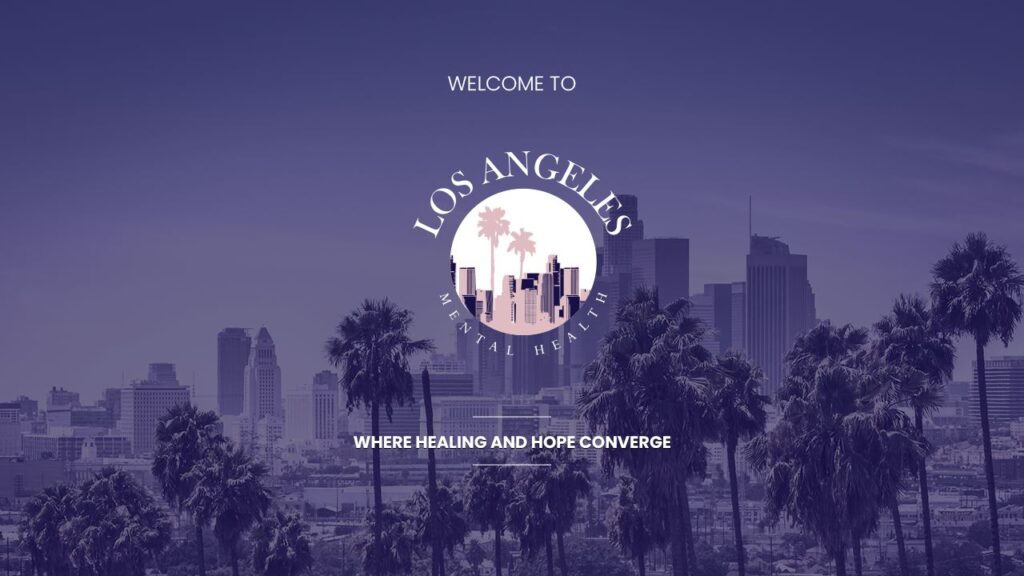



Obsessive-compulsive disorder (OCD) is a tricky condition. Despite the fact that there is currently no cure for obsessions or compulsions that may overwhelm you on a daily basis, there is also no reason to give up your hope on successfully managing OCD – you can regain control over your mind, figure out what coping mechanisms you can incorporate in your routine to handle random unwanted urges and thoughts, and lead a fulfilling life you deserve. Get the help you need and contact Los Angeles Mental Health (LAMH) today.
hope on successfully managing OCD – you can regain control over your mind, figure out what coping mechanisms you can incorporate in your routine to handle random unwanted urges and thoughts, and lead a fulfilling life you deserve. Get the help you need and contact Los Angeles Mental Health (LAMH) today.
We treat mind, body, and spirit with holistic, evidence-based care.
Our experts offer personalized care for lasting mental health recovery.

Intrusive Thoughts and Urges
Arranging and Ordering
Repetitive Checking and Counting
Fear of Contamination and Illness
Lack of Self-Control
Need of Reassurance
The main methods we utilize to support individuals with OCD
Opening up to a mental health professional who is ready to provide you with emphatic and judgment-free listening can help you manage your emotions better, see your behavior with enhanced clarity and direction, and figure out what actions can be left in the past for the sake of your wellness.

This therapy modality can help you accept your feelings and thoughts without dwelling on negativity and define values and principles you are going to follow whenever you are in an anxiety-inducing situation that makes your obsessions and compulsions come out against your will.

In addition to OCD counseling, prescription drugs suggested by a qualified psychiatrist will increase the patient’s chances of managing their disorder. OCD medication includes both antidepressants and antipsychotics - a mental health specialist you work with will tell you what type of medication is going to yield the best results especially if you also require depression treatment or psychosis treatment.

The lack of a supportive and validating environment is a big problem for many people with OCD. You have an opportunity to experience a sense of camaraderie, cope with your setbacks, and celebrate your successes with your peers if you give a chance to group counseling for individuals with similar symptoms.

Whether your OCD was induced by trauma or these issues are unrelated, we can offer you high-quality trauma-informed care. It is critical to address the events in your past that lead to various cognitive distortions and contribute to your distress, so you can be sure all underlying problems are resolved.

OCD specialists will show you how to practice self-care and enhance your mental well-being. You can learn to accept your thoughts without acting on them right away, master grounding techniques to calm down, distract yourself with activities that demand physical effort, such as yoga, and improve your sleep patterns with relaxation techniques such as breathing exercises.

Experienced Therapists
The expertise of mental health specialists is an essential factor especially when it comes to tricky mental health conditions such as OCD that can be managed but not fully treated. Our team knows how to help you embark on a rewarding mental health journey and guide you as you learn to navigate life’s challenges and transitions that may reflect in your mental well-being.
Tailored Approach
Whether OCD is your only problem or you also require bipolar disorder treatment or schizophrenia treatment, the programs and services we provide will be adjusted to suit your needs and preferences. There is no point in using the same therapy modalities and approaches to help people with different medical histories and symptoms, so you can be certain your treatment is customized to you in particular.
Non-Judgmental Space
Numerous individuals are worried about seeking professional OCD help due to misconceptions related to therapy and therapists – they are afraid their concerns may be dismissed, and they worry they will not be accepted as they are. This is not something you should stress about in regard to our facility. Our goal is to make all clients feel heard – for instance, we offer LGBTQIA+ mental health services so that you can feel safe working with your therapist.
Holistic Care
One of the key principles of our institution is the whole-person approach to healing. OCD recovery cannot be complete if we fail to address other mental health issues or do not help you maintain a balance between your physical and psychological needs – we will detect and diagnose other problems, introduce you to restorative activities that will improve your health in general, and make sure you do not fall back into the dysfunctional lifestyle you may have led in the past.
Whether your plan is to attend OCD therapy sessions once or twice per week or you would like to sign up for a residential treatment program to deal with the most severe manifestations of this disorder, the location of the mental health facility plays a major role in your future recovery. The map below shows where Los Angeles Mental Health is situated – learn more about the area in question, get directions to our clinic, and tour our facility online before you make an informed decision to undergo treatment at our center.
Whether your plan is to attend OCD therapy sessions once or twice per week or you would like to sign up for a residential treatment program to deal with the most severe manifestations of this disorder, the location of the
mental health facility plays a major role in your future recovery. The map below shows where Los Angeles Mental Health is situated – learn more about the area in question, get directions to our clinic, and tour our facility online before you make an informed decision to undergo treatment at our center.
If you have lived with OCD for many years yet you believe your condition has worsened recently or you have noticed symptoms that may indicate the presence of this disorder, do not hesitate to reach out to a mental healthcare provider for help. It is possible to start treatment at any time just like you can get an opportunity to adjust your approach to OCD management for a better quality of life. Contact Los Angeles Mental Health today – our team will be happy to tell you more about the OCD treatment programs and services we offer.
healthcare provider for help. It is possible to start treatment at any time just like you can get an opportunity to adjust your approach to OCD management for a better quality of life. Contact Los Angeles Mental Health today – our team will be happy to tell you more about the OCD treatment programs and services we offer.
OCD looks different for everyone but usually the symptoms are put into two main categories – obsessions and compulsions. Being scared of illnesses and germs, doubting your decisions, being afraid of losing control, and feeling the urge to put various items in order are the most common obsessions. Compulsions refer to rituals you feel compelled to perform – washing your hands, counting objects around you, following a strict routine, and checking whether you closed the door or switched off electrical appliances.
Cognitive behavioral therapy has proven to be quite effective for individuals with OCD – it helps them see the fault in their compulsive behavior and obsessive thoughts so that they are able to apply logic to their thoughts and actions. Cognitive restructuring challenges the feelings of the person and allows them to focus on facts if their emotions force them to give up in the face of their disorder.
In some instances, OCD can be exacerbated by immense stress, anxiety disorder, or various mood disorders – your emotional state will affect the way you think and behave, and your OCD is not an exception. At our facility we can combine treatment for OCD with anxiety treatment and mood disorder treatment to ensure a transformative mental health journey for every patient.
Most OCD clinics advise their patients to begin with traditional talking therapy – after that, a mental health professional who builds an emotional rapport with the person in question will suggest them to try other treatment options such as cognitive behavioral therapy, solution-focused therapy, and evidence-based therapy.
Our mission is to ensure every patient gets access to treatment customized just for them. Depending on your medical history and current symptoms, we will map out a treatment plan that is supposed to ensure the best therapeutic outcome for you as well as modify our strategy in case it is ever necessary.
All form submissions are 100% confidential and your policy could cover the complete cost of treatment.